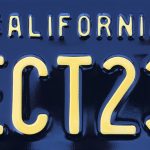
by guest blogger Kieran McCarthy [Eric’s comment: this is a supplement to my more comprehensive post on Van Buren v. US] This was a critically important case with far-reaching policy implications across dozens of industries. 23 amici curiae were filed….

Subway ran a promotion offering deals if customers signed up for text messages. The stores displayed the following print ad: The language in the bottom right: Limited Time Only. Message and data rates may apply. Max10msgs/mo-Msgs may be autodialed from…

Last week, the Supreme Court decided Van Buren v. US. Many hoped the decision would clarify how owners can delimit third-party usage of their computer resources for purposes of the Computer Fraud & Abuse Act (CFAA). Disappointingly, the court explicitly…

Last week, I blogged about Florida’s censorship law, SB 7072. Late last week, NetChoice and CCIA filed a preliminary injunction request. I hope the court strikes down the law quickly, decisively, and with all of the opprobrium (and/or mockery) it…

This blog post reviews Florida’s Transparency in Technology Act, SB 7072. Like other recent efforts to censor the Internet (such as Trump’s anti-230 EO), this law is performative garbage. It was never a serious attempt at crafting good policy. Florida…
by guest blogger Tyler Ochoa On May 29, 2021, New York’s new post-mortem right of publicity law came into effect. The law is codified at N.Y. Civil Rights Law § 50-f. It provides for a post-mortem right of publicity for a…
by guest blogger Tyler Ochoa On May 29, 2021, New York’s new post-mortem right of publicity law came into effect. The law is codified at N.Y. Civil Rights Law § 50-f. It provides for a post-mortem right of publicity for a…

Green runs a YouTube channel called “Libertys Champion” (with 18k subscribers now). Green had a scuffle with a Pierce County security guard, so he submitted public records requests to obtain more information about the county’s security force. The county provided…

Do you remember this case? It was filed in 2009, back when MySpace was still bigger than Facebook. The copyright owners never sent Vimeo any takedown notices over the videos in question, but they still sued Vimeo for hosting them….

